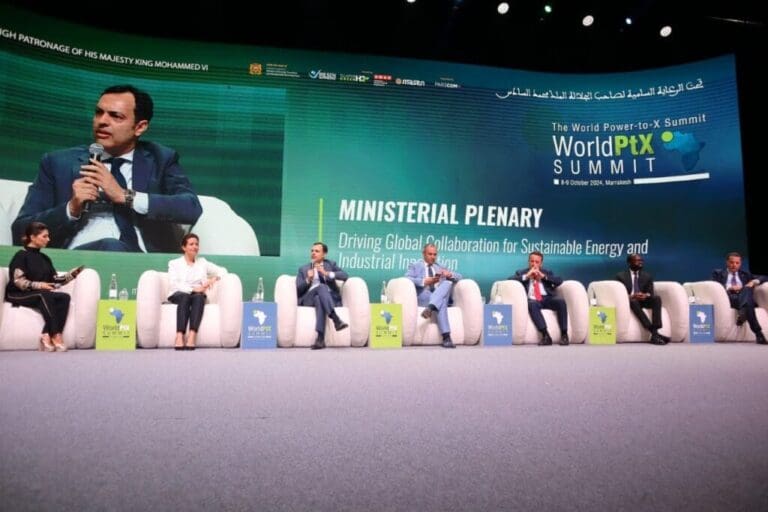The Moroccan Minister of Industry and Trade says that $100 billion market is linked to the production of new technologies with the potential for Morocco to capture up to $4 billion of this market.
The Moroccan government recently unveiled an ambitious initiative to create 30,000 jobs in the booming green hydrogen sector, marking a crucial step in the country’s efforts to position itself as a leader in renewable energy.
The announcement was made by Younes Sekkouri, Moroccan Minister of Economic Inclusion, Small Business, Employment and Skills, at the fourth edition of the Power-to-X Global Summit, held in Marrakech on October 8-9.
Sekkouri stressed that these jobs are part of a broader plan to create 300,000 jobs in strategic sectors such as decarbonization, electric mobility and industry. “We expect that job creation in the green hydrogen sector will represent around 10 per cent of Morocco’s needs,” he said.
Green hydrogen is considered a cornerstone of Morocco’s energy transition strategy, allowing the country to meet its growing energy needs while reducing its carbon footprint.
As part of its ambitious green hydrogen programme, the government has set aside one million hectares of land for development, with 300,000 hectares already allocated to foreign and domestic investors.
Green hydrogen is produced through electrolysis, using renewable energy, and only generates water vapor as a byproduct, thus offering a clean energy alternative.
The move has attracted strong interest from domestic and international investors, drawn by Morocco’s strategic location, diverse natural resources, and skilled workforce.
Officials say the country is well-positioned to become a key player in the global renewable energy market. While Morocco does not have significant oil and gas reserves, its abundant solar and wind resources give it an advantage in the green energy race. The government aims to produce 52 per cent of the country’s energy from renewable sources by 2030.
Investment from financial institutions such as the World Bank and the European Investment Bank is already pouring into the sector and Morocco is home to the world’s largest concentrated solar power plant, located in Ouarzazate.
Despite these advances, Morocco remains heavily dependent on fossil fuels, with about 62 per cent of its electricity generated from coal, gas, and oil. Expanding green hydrogen production could transform this situation and reduce its dependence.
RT/Sf/te/fss/gik/APA


